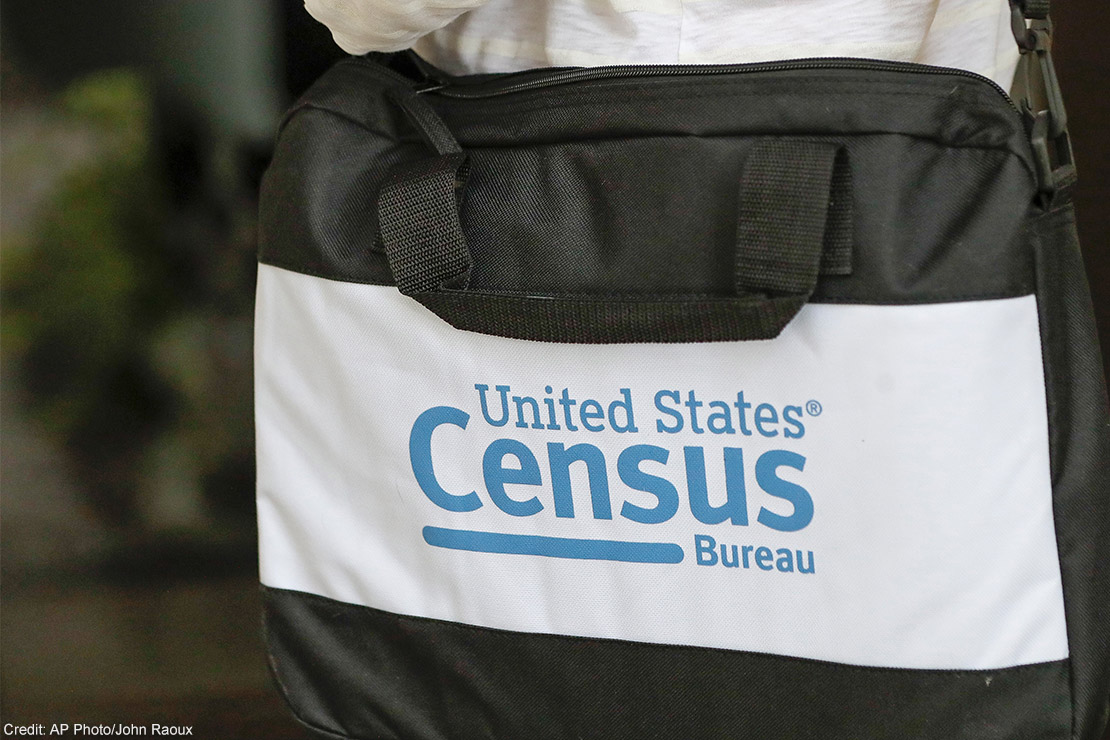Voting Rights
Missouri v. U.S. Department of Commerce
A coalition of civil rights and immigrant-rights organizations has moved to intervene as defendants in a lawsuit that threatens to dismantle the ConstitutionтАЩs long-standing requirement that the decennial census count all people living in the United States. Missouri asks the court to exclude undocumented immigrants and people living in the country on temporary visas from the census count used to determine congressional representationтАФan unprecedented move that would upend more than two centuries of constitutional practice.
Status: Ongoing
View Case
Learn ║ь╨╙╩╙╞╡ Voting Rights
Featured
Mississippi
Dec 2025
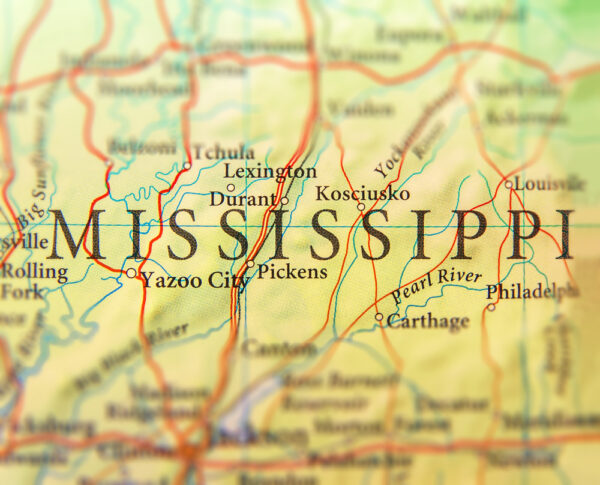
Voting Rights
White v. Mississippi State Board of Elections
District lines used to elect MississippiтАЩs Supreme Court have gone unchanged for more than 35 years. WeтАЩre suing because the current lines crack the Mississippi Delta and dilute the voting strength of Black Mississippians in state Supreme Court elections, in violation of the Voting Rights Act.
U.S. Supreme Court
Nov 2025

Voting Rights
Racial Justice
Allen v. Milligan
Whether AlabamaтАЩs congressional districts violate Section 2 of the Voting Rights Act because they discriminate against Black voters. We succeeded in winning a new map for 2024 elections which, for the first time, has two congressional district that provide Black voters a fair opportunity to elect candidates of their choosing despite multiple attempts by Alabama to stop us at the Supreme Court. Despite this win, Alabama is still defending its discriminatory map, and a trial was held in February 2025 to determine the map for the rest of the decade.
In May 2025, a federal court ruled that Alabama's 2023 congressional map both violates Section 2 of the Voting Rights Act and was enacted by the Alabama Legislature with racially discriminatory intent.
Washington, D.C.
Oct 2025

Voting Rights
League of Women Voters Education Fund v. Trump
On March 25, 2025, in a sweeping and unprecedented Executive Order, President Trump attempted to usurp the power to regulate federal elections from Congress and the States. Among other things, the Executive Order directs the Election Assistance CommissionтАФan agency that Congress specifically established to be bipartisan and independentтАФto require voters to show a passport or other citizenship documentation in order to register to vote in federal elections. If implemented, the Executive Order would threaten the ability of millions of eligible Americans to register and vote and upend the administration of federal elections.
On behalf of leading voter registration organizations and advocacy organizations, the ║ь╨╙╩╙╞╡ and co-counsel filed a lawsuit to block the Executive Order as an unconstitutional power grab.
U.S. Supreme Court
Oct 2025
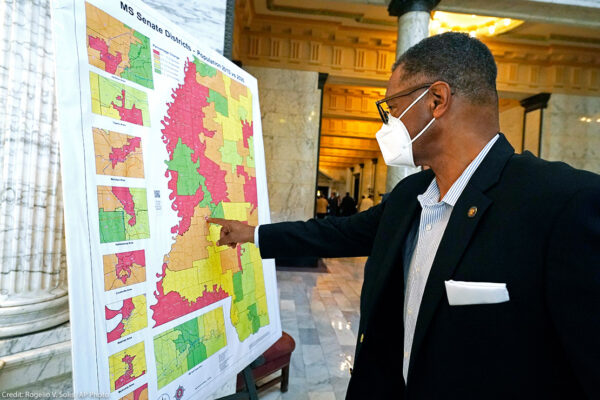
Voting Rights
State Board of Election Commissioners v. Mississippi State Conference of the NAACP
Mississippi has a growing Black population, which is already the largest Black population percentage of any state in the country. Yet. Black Mississippians continue to be significantly under-represented in the state legislature, as MississippiтАЩs latest districting maps fail to reflect the reality of the stateтАЩs changing demographics. During the 2022 redistricting process, the Mississippi legislature refused to create any new districts where Black voters have a chance to elect their preferred representative. The current district lines therefore dilute the voting power of Black Mississippians and continue to deprive them of political representation that is responsive to their needs and concerns, including severe disparities in education and healthcare.
U.S. Supreme Court
Oct 2025

Voting Rights
Louisiana v. Callais (Callais v. Landry)
Whether the congressional map Louisiana adopted to cure a Voting Rights Act violation in Robinson v. Ardoin is itself unlawful as a gerrymander.
Missouri
Sep 2025
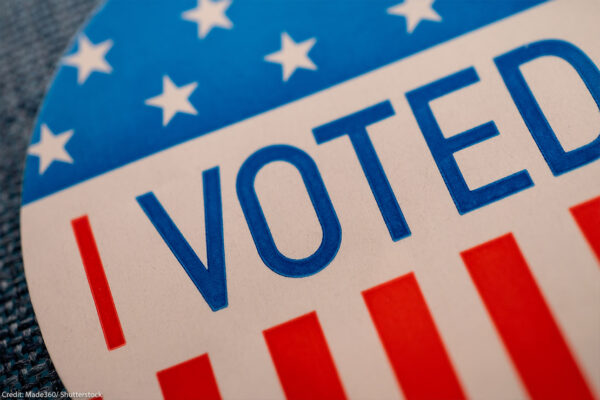
Voting Rights
Wise v. Missouri
In unprecedented fashion, the State of Missouri has redrawn the district lines used for electing members of Congress for a second time this decade. These new district lines are gerrymandered and will harm political representation for all Missourians, particularly Black residents in Kansas City, who have been divided along racial lines.
All Cases
190 Voting Rights Cases
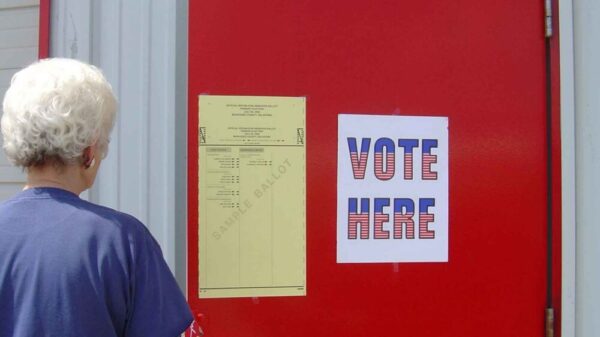
Oregon
Nov 2025
Voting Rights
United States v. Oregon (Amicus)
Representing the ║ь╨╙╩╙╞╡ of Oregon, the ║ь╨╙╩╙╞╡ Voting Rights Project and the ║ь╨╙╩╙╞╡ of Oregon filed an amicus brief in a federal lawsuit over the federal governmentтАЩs demand that Oregon turn over its entire voter registration rolls, including with votersтАЩ sensitive personal data such as driversтАЩ license numbers and partial social security numbers.
Explore case
Oregon
Nov 2025

Voting Rights
United States v. Oregon (Amicus)
Representing the ║ь╨╙╩╙╞╡ of Oregon, the ║ь╨╙╩╙╞╡ Voting Rights Project and the ║ь╨╙╩╙╞╡ of Oregon filed an amicus brief in a federal lawsuit over the federal governmentтАЩs demand that Oregon turn over its entire voter registration rolls, including with votersтАЩ sensitive personal data such as driversтАЩ license numbers and partial social security numbers.

California
Nov 2025
Voting Rights
United States v. Page
Representing the League of Women Voters of California, the League of Women Voters of Orange Coast, and the League of Women Voters of North Orange County, the ║ь╨╙╩╙╞╡ Voting Rights Project, ║ь╨╙╩╙╞╡ of Northern California, and ║ь╨╙╩╙╞╡ of Southern California have filed a motion to intervene in a federal lawsuit over the federal governmentтАЩs demand that Orange County, California turn over unredacted voter information, including votersтАЩ sensitive personal data such as driversтАЩ license numbers and partial social security numbers.
Explore case
California
Nov 2025

Voting Rights
United States v. Page
Representing the League of Women Voters of California, the League of Women Voters of Orange Coast, and the League of Women Voters of North Orange County, the ║ь╨╙╩╙╞╡ Voting Rights Project, ║ь╨╙╩╙╞╡ of Northern California, and ║ь╨╙╩╙╞╡ of Southern California have filed a motion to intervene in a federal lawsuit over the federal governmentтАЩs demand that Orange County, California turn over unredacted voter information, including votersтАЩ sensitive personal data such as driversтАЩ license numbers and partial social security numbers.

Alabama
Oct 2025
Voting Rights
Alabama State Conference of the NAACP v. Allen
Alabama State Conference of the NAACP v. Allen challenges AlabamaтАЩs most recently drawn state legislative maps as dilutive of Black voting power in the state in violation of Section 2 of the Voting Rights Act of 1965.
Explore case
Alabama
Oct 2025

Voting Rights
Alabama State Conference of the NAACP v. Allen
Alabama State Conference of the NAACP v. Allen challenges AlabamaтАЩs most recently drawn state legislative maps as dilutive of Black voting power in the state in violation of Section 2 of the Voting Rights Act of 1965.
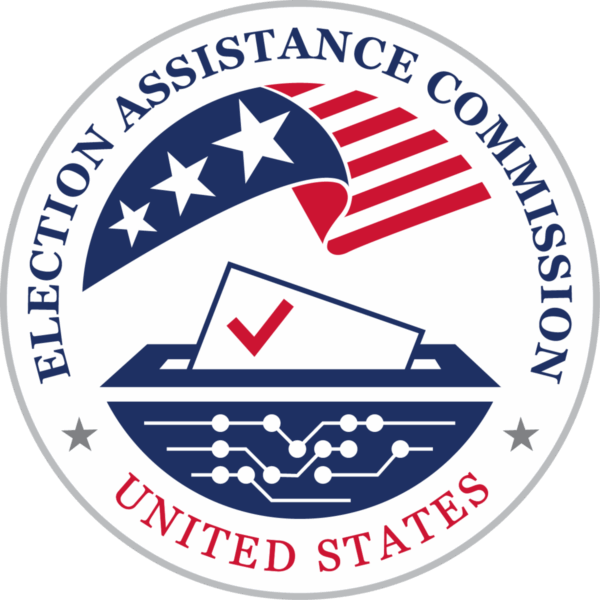
Washington, D.C.
Oct 2025
Voting Rights
Comments on Petition of America First Legal for Rulemaking Before the Election Assistance Commission
The ║ь╨╙╩╙╞╡, along with several partner organizations, is opposing a request to the U.S. Election Assistance Commission from the America First Legal Foundation (AFL) for a new rulemaking to consider changing the federal voter registration form to add a requirement for documentary proof of citizenship.
The federal voter registration form was created by the National Voter Registration Act (NVRA), and under federal law almost all states in the country have to accept it as a form of mail voter registration. As intended by the NVRA, the form is a one page, streamlined application that an individual can complete and mail-in without providing any additional documentation. If the rules about the federal form are changed so that additional documentation is required, it is likely that many states would also change their own state voter registration forms to require documentary proof of citizenship.
This change would potentially disenfranchise millions of eligible U.S. citizens.
Explore case
Washington, D.C.
Oct 2025

Voting Rights
Comments on Petition of America First Legal for Rulemaking Before the Election Assistance Commission
The ║ь╨╙╩╙╞╡, along with several partner organizations, is opposing a request to the U.S. Election Assistance Commission from the America First Legal Foundation (AFL) for a new rulemaking to consider changing the federal voter registration form to add a requirement for documentary proof of citizenship.
The federal voter registration form was created by the National Voter Registration Act (NVRA), and under federal law almost all states in the country have to accept it as a form of mail voter registration. As intended by the NVRA, the form is a one page, streamlined application that an individual can complete and mail-in without providing any additional documentation. If the rules about the federal form are changed so that additional documentation is required, it is likely that many states would also change their own state voter registration forms to require documentary proof of citizenship.
This change would potentially disenfranchise millions of eligible U.S. citizens.

Alaska
Sep 2025
Voting Rights
Racial Justice
Smith v. State of Alaska (Amicus)
The ║ь╨╙╩╙╞╡ and ║ь╨╙╩╙╞╡ of Alaska have filed an amicus in support of Tupe Smith, a woman born in American Samoa who now lives in Whittier, Alaska charged with falsely affirming that she was a U.S. citizen when she registered to vote. But Tupe Smith is not an тАЬalienтАЭ under the law. People, like her, born in the U.S. territory of American Samoa are the only remaining individuals recognized as тАЬnon-citizen U.S. nationals,тАЭ a unique status that falls short of тАЬcitizenтАЭ but nonetheless recognizes that American Samoa has been part of the United States for over 125 years.
All evidence indicates that Ms. Smith believed that, as a non-citizen U.S. national, she was eligible to vote in local elections when she registered to vote. In fact, local election officials encouraged her to check the box labeled "U.S. citizen" when she registered, given the fact that there was no option for "U.S. national."
Our amicus brief urges AlaskaтАЩs Court of Appeals to dismiss Tupe SmithтАЩs indictment because of well-settled principles that election-crime statutes should be construed to avoid punishing innocent mistakes. Separately, we warn that upholding a different view of the law would make Alaska an outlier among the states.
Explore case
Alaska
Sep 2025

Voting Rights
Racial Justice
Smith v. State of Alaska (Amicus)
The ║ь╨╙╩╙╞╡ and ║ь╨╙╩╙╞╡ of Alaska have filed an amicus in support of Tupe Smith, a woman born in American Samoa who now lives in Whittier, Alaska charged with falsely affirming that she was a U.S. citizen when she registered to vote. But Tupe Smith is not an тАЬalienтАЭ under the law. People, like her, born in the U.S. territory of American Samoa are the only remaining individuals recognized as тАЬnon-citizen U.S. nationals,тАЭ a unique status that falls short of тАЬcitizenтАЭ but nonetheless recognizes that American Samoa has been part of the United States for over 125 years.
All evidence indicates that Ms. Smith believed that, as a non-citizen U.S. national, she was eligible to vote in local elections when she registered to vote. In fact, local election officials encouraged her to check the box labeled "U.S. citizen" when she registered, given the fact that there was no option for "U.S. national."
Our amicus brief urges AlaskaтАЩs Court of Appeals to dismiss Tupe SmithтАЩs indictment because of well-settled principles that election-crime statutes should be construed to avoid punishing innocent mistakes. Separately, we warn that upholding a different view of the law would make Alaska an outlier among the states.
